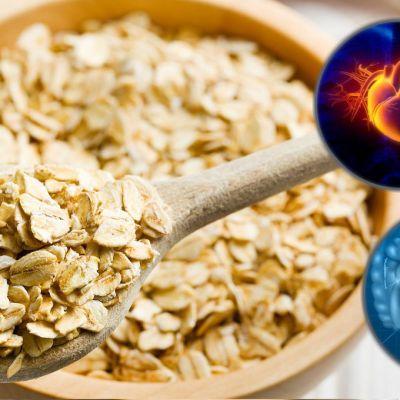
Oats: what it is and nutritional properties
L'oats is a gramineae present throughout Europe. Cultivation adapts well to Mediterranean basin, but also in colder climates: while in the country it was mainly used for equine feeding, in the countries of northern Europe oats have a first-rate place in diets, especially inserted in the first meal of the day, that is in breakfast.
Oats are a food very energetic and rich in fat, therefore also suitable for recipes and preparations for convalescents and asthenic.
Oats are the cereals which, with the same weight, it contains more proteins and lipids than all the others. It has a good amount of vitamin B1 and B6, as well as iron and magnesium. It also presents a conspicuous presence of insoluble fibers. This makes it very useful for intestinal health.
Read also Intestinal regularity, how to promote it? >>
Oats: useful for intestinal health
The presence of fibers oats, be it in grains, flakes, or flour, make it a very beneficial cereal for the intestine.
The fibers, of which oats are particularly rich, in fact, act as a scavenger of the intestine: passing through the stomach almost undigested, they pass through the intestine absorbing water, fats responsible for raising cholesterol values, bile acids and sugars.
La bran it allows to encapsulate and transport these undigested substances in the faeces. Also thanks to the fibers, the health of the mucous membranes and intestinal flora, on which one depends, is maintained good digestion and good transit.
La gruel of oats è laxative e diuretics, thanks to the high concentration of fibers of this cereal. Bran is useful for those suffering from constipation and intestinal irregularity, but even more useful is the bran taken together with all the other parts of the cereal: often on the market one can find oat bran separated from the grain flour.
Using only bran can cause irritation of the intestinal tract, rather than helping the well-being of the intestine. In cases where the intestine is already sensitized, it is therefore not recommended to use oats without the gradual introduction of the food: the fibers could increase inflammation and irritation.
When it comes gradually introducedBy allowing the body to get used to the transit of the bran and fibers present, oats are well tolerated even by those suffering from gastritis, and prevents the formation of intestinal blocks or dysentery, as well as the formation of gas.
Il best way to take oats, at least at the beginning and if you have always and only followed a diet rich in white and refined cereals, is to prepare puddings with flour: in this way the fibers are reduced to tiny sizes and in the cooking process they already absorb a lot of water.
They then arrive to the stomach already softened and in theintestine they don't need to absorb too much water, passing like a real street cleaner and cleaning up the walls.
Oats can be too flock: also in this way, added to a sugar-free vegetable drink, it can be used at breakfast or as a dessert, flavored with spices or bitter cocoa, or natural sweeteners such as honey, agave or stevia.
The oats in berry, once cooked, it can be cooked like any other cereal: lends itself to fresh summer salads, flans, soups.
La flour can be added to the preparation of bread and pizzas and focaccias: oatmeal makes the dough softer and the shortbreads for biscuits and cakes more fragrant.
È easy to use oats, benefit from its healthy qualities for the gut, why easy to find, does not require excessive processing and keeps well.
Read also
> Foods rich in fiber, what are they?
> Oat water, properties and benefits


























